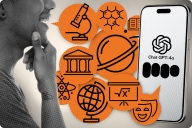You have /5 articles left.
Sign up for a free account or log in.
Thanks to everyone who commented on last week’s post. As always, every comment made me think. I’m especially grateful to those who pointed out the fallacy of my assertion that the world is more dangerous (for middle-class children) than previously, because it made me think a lot. Obviously, I should have done some research before I mindlessly repeated that myth. I could even have looked in my own backyard: New York City, where we live, is immeasurably safer now than when I first moved here, in 1975, from the nearby suburb where I’d grown up. (Though it’s not as safe as when my husband was a child in Brooklyn. The Dodgers were still playing in Ebbets Field then, and admission was free after the sixth inning. Starting when he was about ten, he and his friends would travel there after school, sit in any empty seat they could find, and try to look pathetic and hungry so that adult strangers would shower them with hot dogs and sodas. No problems ever arose that he knows about. But that really was a different world.)
The world I grew up in, and the ones my parents survived, were not without incident. My mother narrowly escaped being kidnapped when she was around six, in her otherwise idyllic hometown of Petersburg, Virginia. The clichéd stranger lured her and a friend into the backseat of his car with the promise of candy. He drove a few blocks, then parked the car and got out, telling them to wait while he bought more candy. While they waited, the other little girl, apparently overexcited by the adventure, wet her pants. They were afraid the man would be angry at them for messing up the backseat, so they jumped out of the car and ran home.
My father grew up in a fairly rough part of the Bronx, where the Catholic school kids were often ambushed by public school toughs (at least the way he told it). Once a gang held his eight-year-old brother over a trashcan fire until his feet were covered with blisters.
The mother of a childhood friend told me about taking part in a practical joke during her own childhood in Ireland: a bunch of kids locked a little girl who suffered from claustrophobia into a cabinet, then went home to dinner, forgetting about her. The cabinet turned out to be a discarded icebox, which was airtight, and by the time the child was missed and her friends led the way to the cabinet, she had suffocated.
Yet these incidents were considered just that — frightening, painful events, but anomalous, not cautionary tales. They didn’t prompt the parents to supervise our every move, even after my friend’s older brother drowned during a spontaneous swim with his friends in a nearby lake. When I reported to my mother that on the way home from first grade, a weird man had kissed my cheek and given me a quarter, she was upset, but her response was to lecture me on not interacting with strangers, not to insist on driving me to and from school every day. And that seemed right.
So why is it that I, and so many other parents, are haunted by the specter of something happening to our own kids? I don’t think it’s just the ubiquitous internal panel of parenting experts, though of course they make every dilemma more fraught. I worry less, though, about someone judging me for putting my child in a dangerous situation, than I do about the possible consequences—trauma, or worse. But given that, as various commenters reported, crime is down and safety precautions are more sophisticated, why should this be so? Why does everything feel less safe?
I don’t have the answers. I do have some thoughts, though.
While my parents lived through hard times, I think they grew up feeling that the world itself was basically secure. The First World War was believed to have made the world safe for democracy. The Depression hit my father’s eleven-member family hard, but there was always food, and they don’t seem to have taken shortages as signs that the world was ending, as wealthier people believed.
I, on the other hand, was a member of the “duck and cover” generation. Once a month or so, starting in elementary school, we would be herded into the cafeteria and instructed to crouch under the tables, our heads between our knees. Even as children, my friends and I knew this was nuts. How was a flimsy wooden table supposed to protect us from a nuclear attack? Thus, we got the double message that we were in constant peril and that the adults had no idea how to protect us. This conviction was reinforced as we lived through, in short order, the assassinations of President Kennedy, Martin Luther King, Robert Kennedy and Malcolm X, and the reports of the My Lai massacre and other atrocities of the Vietnam War. More recently, my son was in first grade on 9/11/01, and I have volunteered with torture victims whose stories give me nightmares.
As I reflect on these phenomena, it seems to me that when I worry about my son’s increasing independence, my real fear isn’t that he’ll be mugged on the subway, or kidnapped, or (as recently happened) hit by a car in the bike lane. It’s a more pervasive sense that anything can happen, and most likely “anything” will not be good. I try hard not to pass this sense onto him. I guess I’ll find out how successful I’ve been when he has kids of his own.





